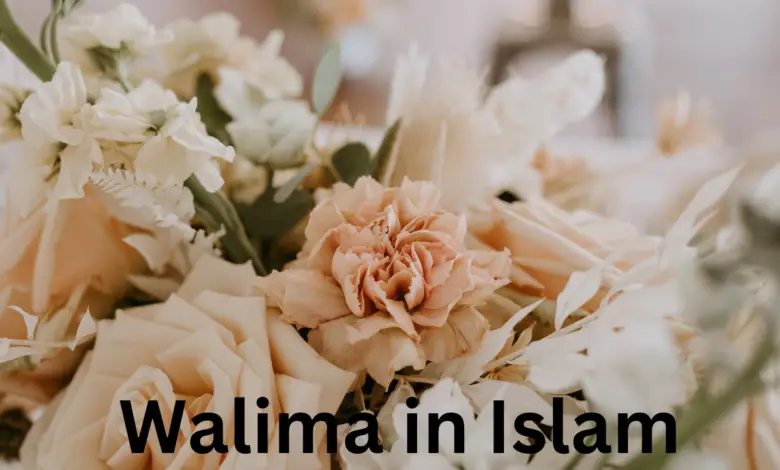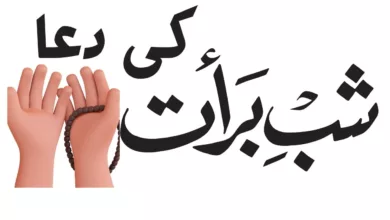Walima in Islam
The Significance of Walima in Islam: A Sacred Celebration of Love and Unity.


Introduction of Walima
In Islam, the concept of a wedding is a sacred union that marks the beginning of a new chapter in the lives of two individuals. The wedding ceremony is celebrated with joy and enthusiasm, culminating in the solemnization of the marriage contract (Nikah). Following the Nikah, the Walima is a significant event that holds immense importance in Islamic tradition. This article delves into the deep-rooted significance of Walima in Islam and the customs and practices associated with this auspicious occasion.
The Meaning and Importance of Walima
The term “Walima” is derived from the Arabic word “walam,” which means to gather or to assemble. In Islamic terminology, Walima refers to the wedding banquet or feast hosted by the groom’s family following the consummation of the marriage. This event is a proclamation of the couple’s union, and it holds considerable spiritual, social, and communal significance in Islam.
The Walima serves as a platform for the couple to express gratitude to Allah for uniting them in marriage and to share their joy with family, friends, and the wider community. It is seen as an opportunity to foster unity, love, and happiness within the Muslim society and strengthen the bonds between families.
Quranic and Prophetic Emphasis on Walima
Though the concept of Walima is not explicitly mentioned in the Quran, its essence can be traced back to the teachings of Prophet Muhammad (peace be upon him). Several Hadiths (sayings and actions of the Prophet) emphasize the importance of holding a wedding feast and spreading joy on such occasions.
One famous Hadith narrated by Anas bin Malik states, “The Messenger of Allah (peace be upon him) saw some yellow marks on ‘Abdullah bin Amr’s (a companion of the Prophet) forearms and asked him about them. He replied, ‘I married a woman from the Ansar.’ The Prophet asked, ‘How much did you give her as dowry?’ He said, ‘A gold piece.’ The Prophet said, ‘Offer a Walima, even if it is with one sheep.'”
This Hadith highlights the simplicity of Walima and the importance of sharing joy with others, even if it is with a modest feast.
Customs and Practices during Walima
- Timing: The Walima is usually held after the consummation of the marriage, and it is recommended to conduct it as soon as possible after the Nikah. Delaying the Walima is discouraged in Islamic tradition.
- Venue: The venue for Walima can vary, but it is commonly held at a mosque, banquet hall, or the groom’s residence. The choice of the venue is influenced by the size of the gathering and the financial capacity of the hosts.
- Invitations: Family, friends, and members of the community are invited to the Walima. Islam encourages inviting the poor and needy as well, as it reflects the spirit of sharing blessings and spreading joy among those less fortunate.
- Food and Hospitality: Hosting a lavish feast is not obligatory in Islam, but it is commendable to serve good food and hospitality to guests. The food should be halal (permissible) and offered with sincerity and gratitude to Allah.
- Dress Code: Guests are encouraged to dress modestly and in accordance with Islamic guidelines. The bride and groom may also choose to wear traditional Islamic attire that adheres to the principles of modesty.
- Dua and Blessings: The Walima usually commences with a recitation of Quranic verses, followed by supplications (dua) for the newlyweds’ happiness and prosperity. Blessings are sought for the couple’s future together, and attendees pray for their long-lasting union.
Conclusion
Walima holds immense significance in Islam as it symbolizes the completion of the wedding celebrations and the beginning of a new journey for the newly married couple. It serves as a platform to express gratitude to Allah, share joy with family and friends, and strengthen the bonds within the Muslim community. By adhering to the teachings of Prophet Muhammad (peace be upon him) and embracing the spirit of sharing, modesty, and gratitude, the institution of Walima becomes a source of unity and happiness for Muslims worldwide.
What is Walima in Islam?
Walima in Islam refers to the wedding feast or banquet hosted by the groom’s family to celebrate and announce the marriage after the Nikah (marriage contract) has been performed.
Is Walima mandatory in Islam?
While Walima is not obligatory, it is highly recommended in Islamic tradition as it reflects the spirit of sharing blessings and joy with the community.
When should the Walima be held?
It is recommended to conduct the Walima as soon as possible after the Nikah. Delaying the Walima is discouraged in Islam.
Who should be invited to the Walima?
Family, friends, and members of the community should be invited to the Walima. Inviting the poor and needy is also encouraged as an act of charity and spreading happiness.
What is the significance of Walima in Islam?
Walima holds spiritual and social significance in Islam. It allows the couple to express gratitude to Allah, share joy with loved ones, and strengthen the bonds within the Muslim community.
What type of food should be served at the Walima?
The food served at the Walima should be halal (permissible) and can vary depending on cultural traditions and preferences. It is commendable to serve good food and hospitality to guests.
Where is the Walima usually held?
The Walima can be held at a mosque, banquet hall, or the groom’s residence, depending on the size of the gathering and the hosts’ financial capacity.
What should the bride and groom wear at the Walima?
The bride and groom are encouraged to dress modestly and in accordance with Islamic guidelines. They may choose to wear traditional Islamic attire that adheres to the principles of modesty.
Can the Walima be combined with other wedding events?
Yes, it is common for the Walima to be part of a series of wedding events. However, the Walima should be a separate and distinct celebration.
Are there any religious rituals performed during the Walima?
The Walima usually commences with a recitation of Quranic verses and supplications (dua) for the couple’s happiness and prosperity. Blessings are sought for their future together.





